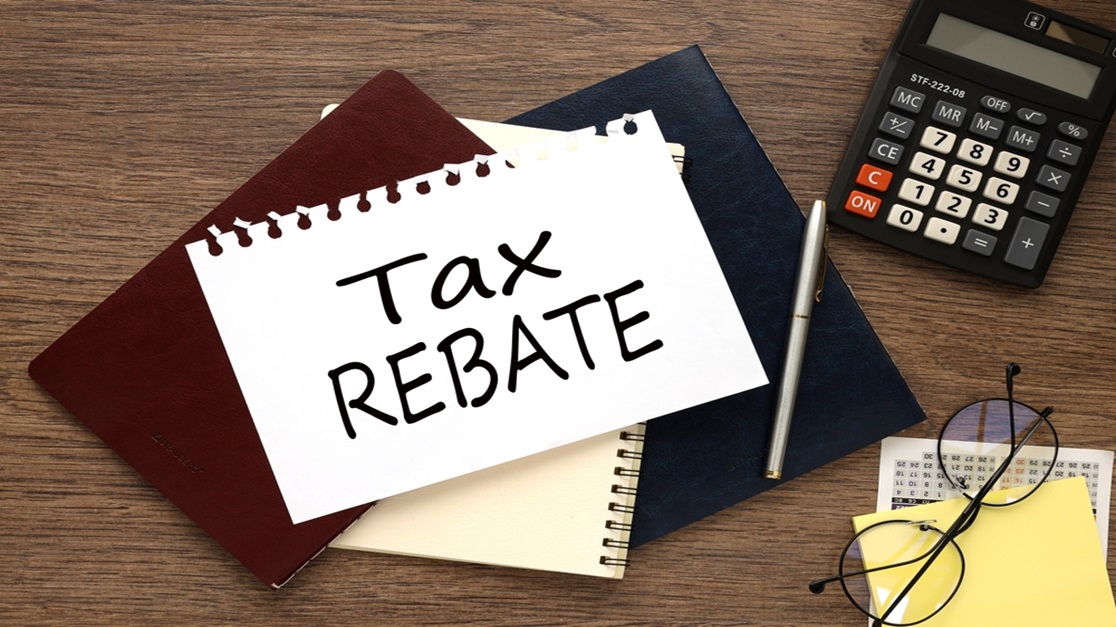How to Avail Tax Benefits on Joint Home Loans
March 24, 2025

Did you know that taking a joint home loan with your spouse or a family member can offer significant tax benefits? In this article, we will explore the various tax benefits on joint home loans and how you can make the most of them. So, let's dive in!
Tax Benefits on Joint Home Loans
Taking joint home loans for your home offers several advantages, including tax deductions on both the principal and interest amount. When two for a home loan together, they become co-borrowers and co-owners of the property. This arrangement allows them to share both the responsibility and benefits of the loan.
Tax Deductions on Interest Paid
As per Section 24(b) of the Income Tax Act, individuals can claim tax deductions up to ₹2 lakh per year on the interest paid towards their home loan. In the case of joint home loans, each co-applicant can claim this deduction individually. This means that if you and your spouse are co-borrowers, both of you can claim up to ₹2 lakh each. Please note that this is applicable for buying or constructing a new house, which must be completed within 5 years from the financial year end in which the loan was availed.
Tax Deductions on Principal Repayment and Stamp Duty
Under Section 80C of the Income Tax Act, individuals are eligible for tax deductions up to ₹1.5 lakh per year on the principal repayment and stamp duty of their home loan. This is applicable only if the construction of the property is complete. Please note that tax benefits under Section 80C won’t be available if the property is sold within 5 years from the end of the financial year pertaining to the possession of the property.
Tax Benefits under Section 80EE
Apart from the above two, first-time homebuyers can claim an additional deduction under Sec80EE of up to ₹50,000 on interest payments, provided the property value does not exceed ₹50 lakh and the loan amount is within ₹35 lakh. There’s another criteria that should be met – the loan should have been sanctioned between 1st April 2016 to 31st March 2017.
Tax Benefits under Section 80EEA
You can claim additional tax benefits up to ₹1.5 lakh under Section 80EEA only if the stamp value of the property is equivalent to or lower than ₹45 lakh. Additionally, the loan should have been sanctioned between 1 April 2019 and 31 March 2022. Also, you cannot claim tax benefits under Section 80EEA if you’re eligible for tax deductions under Section 80EE.
How to Make the Most of Tax Benefits on Joint Home Loans
Now that we understand the concept of tax benefits on joint home loans let's explore how you can avail these benefits:
Ensure Joint Ownership
To qualify for tax benefits on joint home loans, all co-borrowers must be co-owners of the property. This means that the property's ownership should be in the names of all the individuals applying for the loan.
Calculate Tax Benefits
Before submitting your tax returns, calculate the tax benefits you are eligible for based on your joint home loan. Consider consulting a tax professional or using an online tax calculator to accurately determine your deductions.
Maintain Proper Documentation
It is essential to maintain proper documentation, including home loan agreements, repayment schedules, and interest certificates. These documents act as proof and support your claim for tax benefits.
File Separate Tax Returns
While joint loan borrowers can individually claim tax benefits, it is important to file separate tax returns and provide the necessary details regarding the loan and deductions claimed.
Scenario 1: Mr. and Mrs. Kapoor's joint loan for a home
To illustrate how tax benefits work on joint loans for a home, let's consider the case of Mr. and Mrs. Kapoor.
Mr. Kapoor takes a home loan of ₹60 lakh with an annual interest payment of ₹6 lakh. Mrs. Kapoor is also a co-borrower and co-owner.
Tax Benefits Calculation: As per Section 24(b), both Mr. and Mrs. Kapoor can claim a deduction of up to ₹2 lakh each towards the interest paid on their joint home loan.
Separately, they can claim deduction of Rs 1.5 lakh each under SEC80C. Considering these deductions, Mr. Kapoor's taxable income reduces by ₹3.5 lakh (₹2 lakh + ₹1.5 lakh), and Mrs. Kapoor's taxable income reduces by ₹3.5 lakh as well.
Together, they can save up to ₹7 lakh as tax deductions on home loans.
Final Thoughts
Availing tax benefits on joint home loans can significantly reduce your tax liability while fulfilling your dream of owning a home. By taking advantage of the deductions available on interest paid and principal repayment, you can save a substantial amount in taxes each year.
To make the most of the benefits on joint loans for a home, ensure that all co-borrowers are also co-owners of the property and maintain proper documentation. Calculate your tax benefits accurately and file separate tax returns to claim individual deductions.
Buying a house has never been this easy! Avail Ujjivan SFB’s wide range of affordable home loan products and enjoy a hassle-free loan journey. From house purchase loan to plot loans and home improvement loans, we have it all! Alternatively, you can browse through Ujjivan SFB product suite - our wide range of financial products are designed to make your financial life better.
Disclaimer:
The contents herein are only for informational purposes and generic in nature. The content does not amount to an offer, invitation or solicitation of any kind to buy or sell, and are not intended to create any legal rights or obligations. This information is subject to updation, completion, amendment and verification without notice. The contents herein are also subject to other product-specific terms and conditions, as well as any applicable third-party terms and conditions, for which Ujjivan Small Finance Bank assumes no responsibility or liability.
Nothing contained herein is intended to constitute financial, investment, legal, tax, or any other professional advice or opinion. Please obtain professional advice before making investment or any other decisions. Any investment decisions that may be made by the you shall be at your own sole discretion, independent analysis and evaluation of the risks involved. The use of any information set out in this document is entirely at the user’s own risk. Ujjivan Small Finance Bank Limited makes no representation or warranty, express or implied, as to the accuracy and completeness for any information herein. The Bank disclaims any and all liability for any loss or damage (direct, indirect, consequential, or otherwise) incurred by you due to use of or due to investment, product application decisions made by you on the basis of the contents herein. While the information is prepared in good faith from sources deemed reliable (including public sources), the Bank disclaims any liability with respect to accuracy of information or any error or omission or any loss or damage incurred by anyone in reliance on the contents herein, in any manner whatsoever.
To know more about Ujjivan Small Finance Bank Products Visit:"https://www.ujjivansfb.in"
All intellectual property rights, including copyrights, trademarks, and other proprietary rights, pertaining to the content and materials displayed herein, belong
to Ujjivan Small Finance Bank Limited or its licensors. Unauthorised use or misuse of any intellectual property, or other content displayed herein is strictly prohibited and the same is not intended for distribution to, or use by, any person in any jurisdiction where such distribution or use would (by reason of that person’s nationality, residence or otherwise) be contrary to law or registration or would subject Ujjivan Small Finance Bank Limited or its affiliates to any licensing or registration requirements.
FAQs
1. Can I avail tax benefits on joint home loans if I am not a co-owner of the property?
No, to claim tax benefits, all co-borrowers must be co-owners of the property.
2. Are there any specific conditions for joint home loans to avail tax benefits?
Yes, joint home loan borrowers can avail tax benefits if they meet the conditions mentioned in Section 24(b) and Section 80C of the Income Tax Act.
3. Can I claim tax deductions on loans on my portion of the joint home loan if I am only a co-borrower and not a co-owner?
No, you have to be co-owner of the property if you wish to claim tax deductions on your portion of the joint home loan.
4. Is it beneficial to opt joint loans on a home?
Yes, opting for a joint home loan offers several benefits, including enhanced loan eligibility and increased tax benefits.
5. Can a joint home loan be taken with any family member?
Yes, you can opt for a joints loan on your home with your spouse, parents, siblings, or children.
6. Can I claim deductions on both principal repayment and interest paid as tax deductions on loans?
Yes, each co-applicant can claim tax deductions on loans for both principal repayment and interest paid, up to the prescribed limits.
7. Is it necessary to have equal ownership in the property for a joint home loan?
No, joint home loans can be availed with different ownership shares among co-applicants.
8. Can I claim tax benefits on a joint home loan for a property under construction?
Yes, you can claim tax benefits on a joint home loan for a property under construction if you have obtained a completion certificate.
9. How do I calculate my share of deductions on a joint home loan?
Your share of deductions on a joint home loan is based on your ownership percentage in the property.
Latest Blogs

ITR-1 (Sahaj) Restrictions: Income Sources Not Allowed & Filing Rules
With just a few days left before the 15 September 2025 deadline for filing Income Tax Returns (ITRs) for Assessment Year (AY) 2025-26, many taxpayers are rushing to submit their forms online.

GST Rate Cut on Electronics: What It Means for Consumers and Retailers
India’s Goods and Services Tax (GST) system has entered a new era with the rollout of GST 2.0, effective from September 22, 2025.

Banking Safety Guide: How to Avoid QR Code Frauds While Making Payments
India’s love for QR code payments has made transactions lightning-fast, but also opened a new front for cybercriminals.

Scam Alert! Phishing, Vishing, and Smishing Can Drain Out Your Finances
Digital banking in India has transformed the way we manage money.

India’s New GST Reform Bill: What GST 2.0 Means for You
India’s indirect tax system is entering a landmark new phase.





